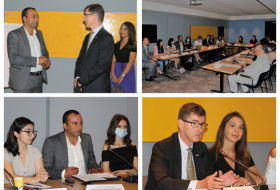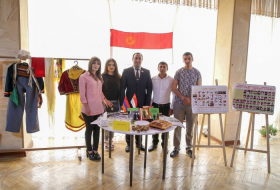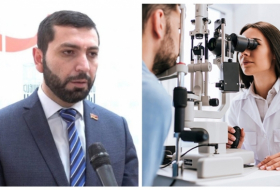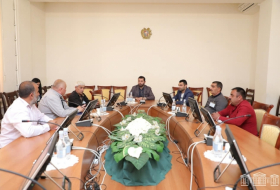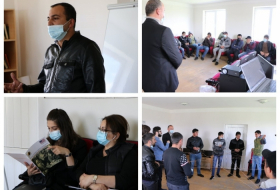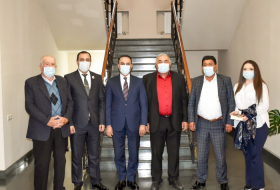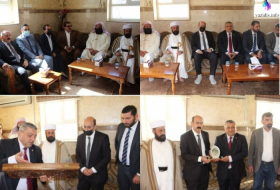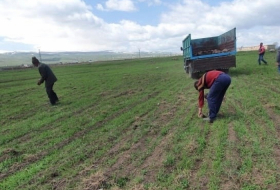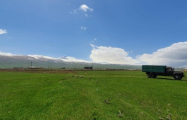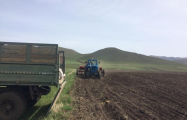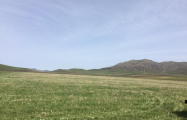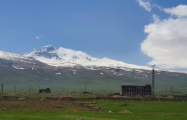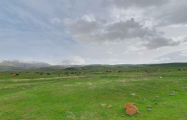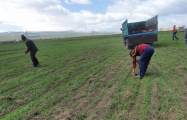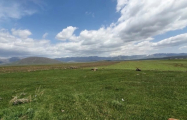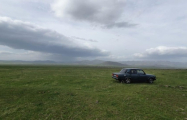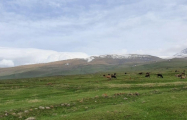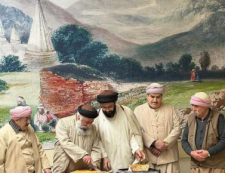Problems of Yazidi farmers in Armenia
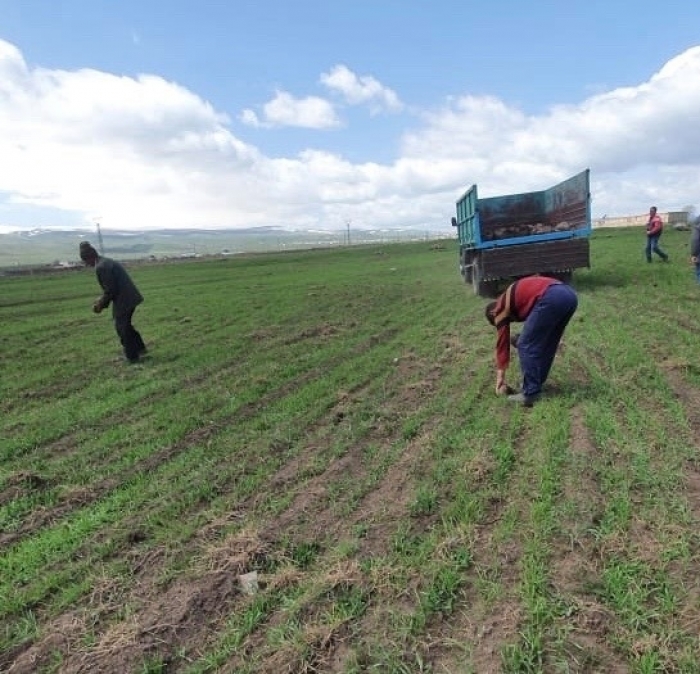
Crisis phenomena are increasing in the agricultural sector of the Republic of Armenia, which today leads to the ruin of the migration of Yazidi farmers and the population from the country. The most acute problem is the unprofitability of small Yazidi farms, which do not have the means to buy seeds, fertilizers, plant protection products, agricultural machinery, and irrigation.
Many Yazidi villages are located in an arid zone where farming is impossible without irrigation. Some Yazidi villages have become empty due to the critical situation with water (including drinking water). For example, the village of Tlik historically received water from four natural springs, this water was used to water gardens and vegetable gardens, and to water livestock. However, due to the increasing dryness of the climate, the springs have dried up. For drinking and household needs, water began to be brought to the village, but it was not enough for full-fledged agricultural activities. As a result, only 7 out of 120 families remain in the village by 2020.
Even in those Yazidi villages where there are water sources nearby (rivers, springs, irrigation channels), there are problems with irrigation systems. The equipment of irrigation networks created in Soviet times is worn out, many of them have fallen into complete disrepair. Instead of modern high-efficiency irrigation systems, such as drip irrigation, Yazidi farmers use ditches dug in the ground to water their land. As a result, there is an unjustified loss of water, and many sections of the water simply does not reach.
The problem is the lack of normal roads, especially in mountainous areas. In some fields, it is difficult to deliver equipment, which farmers usually also have problems with. Agricultural machinery is old, often breaks down, there are no spare parts for it. Yazidi farmers do not have enough funds to purchase new equipment. Small-scale farms simply cannot solve the problems of both purchasing equipment and creating normal infrastructure (roads, irrigation systems). Therefore, the issue of enlarging the farms of Yazidi farmers is acute.
In Soviet times, there were collective farms and state farms that were dissolved with the collapse of the USSR. Today, the issue of new forms of agricultural cooperation is acute. We need a project to consolidate farms while preserving the ownership rights of farmers of the United lands. And these farms need state support.
The critical situation is not only in agriculture, but also in animal husbandry, which is engaged in by the majority of Yazidi farmers. The capacity of the domestic livestock market in the Republic of Armenia is small. the problem could be solved by exporting livestock products, which should be facilitated by the state. In addition, the products of Yazidi farmers have recently faced "unfair" competition in the domestic market.
For example, some unscrupulous cheese producers prefer to make a cheap "raw product" instead of natural cheese from vegetable fat and milk powder, the cost of production of which is lower than natural cheese. Yazidis who produce their own cheese on their farms face having to compete with" pseudo-cheese " made from powder and palm oil. Even "honest" producers who buy milk from Yazidi farmers are forced to lower their purchase prices in order to compete with counterfeit products.
Unfortunately, the introduction by the state of" well-intentioned "separate" European standards " in the agricultural sector without taking into account the specifics of Armenia leads to new problems and puts Yazidi farmers on the verge of survival. Thus, the law recently passed by the Parliament of the Republic of Armenia requiring that cattle be slaughtered only in licensed slaughterhouses has been "written off" from European norms. Perhaps it would be justified in the conditions of Austria and Switzerland ,where good roads are conducted to all mountain pastures, there are no problems with transporting livestock, there is a wide network of the same slaughterhouses equipped with modern equipment. However, when all summer cattle graze on high-altitude pastures "far from roads and civilization", compliance with the law becomes problematic.
At the beginning of 2020, livestock farmers, including Yazidis, protested against this law, as both Armenian and Russian media reported in particular in the article" due to the"meat" law, Armenia may lose at least 35 thousand citizens". The representative of the public organization "Young Yazidis", human rights activist said Avdalyan then explained that the dependence of Yazidis on income received from the sale of meat is 90%, and those who accept such innovations have no idea about the procedure for slaughtering livestock.
On the contrary, Yazidi livestock breeders need laws that both in the same European countries provide budget subsidies for livestock both cattle and sheep. The EU countries understand that this not only ensures food self-sufficiency of the state and increases the export potential of agriculture, but also solves the issue of employment of the rural population. Otherwise, you will have to spend much more money on unemployment benefits. It is necessary to support the agricultural sector and farmers not through social assistance, but through the implementation of programs to improve the efficiency and profitability of the industry.
The lack of sufficient support for Yazidi farmers from the state, problems with legislation, "savings" on investment in agricultural infrastructure, in particular the creation of modern irrigation systems, providing water to arid regions, leads to the fact that agriculture has become unprofitable and risky occupation. But despite the above-mentioned problems, Yazidi farmers are engaged in farming and cattle breeding to feed their families.
Tags: #yazidsiinfo #новости #езиды #news #yazidiofarmenia

